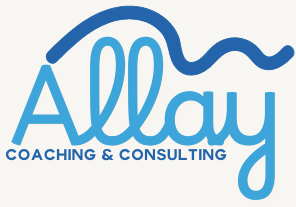In the fast-paced realm of business, staying focused often requires more than just strategic planning and operational efficiency. It involves fostering a mindset that promotes resilience, creativity, and continuous growth. This is where the principles of positive psychology intersect beautifully with business coaching, offering transformative strategies that can propel a business forward.
Understanding Positive Psychology
Positive psychology is a branch of psychology that focuses on the positive aspects of human life, such as happiness, well-being, and flourishing. Unlike traditional psychology, which often focuses on addressing mental health issues, positive psychology aims at enhancing life satisfaction and optimizing functioning. The foundational idea is not merely to survive but to thrive.
The Impact of Positive Psychology in Business
Incorporating positive psychology into business settings can lead to significant improvements in workplace atmosphere, employee satisfaction, and overall organizational health. Studies show that positive work environments are more productive and have lower rates of turnover. According to a seminal paper by Achor, S. (2011), positive environments can dramatically boost the performance metrics across a spectrum of KPIs, including sales and creativity. Positive psychology encourages practices that foster leadership qualities, resilience, and motivation, making businesses more adaptable and robust in facing challenges.
How Business Coaching Utilizes Positive Psychology
Business coaching has increasingly integrated positive psychology techniques to enhance its effectiveness. Coaches help leaders and teams identify their strengths and use them to their fullest potential, a method supported by research from Seligman, M. E. P., & Csikszentmihalyi, M. (2000), which underscores the value of strength-based approaches in fostering professional growth and achievement.
- Strengths Identification and Utilization: Business coaches work with individuals and teams to identify personal and collective strengths. By focusing on these strengths, organizations can maximize efficiency and improve job satisfaction among employees.
- Goal Setting and Positive Framing: Positive psychology emphasizes the importance of setting clear, achievable goals. Coaches help businesses set optimistic yet realistic goals, ensuring they are aligned with the individual’s and the organization’s values and capabilities.
- Building Resilience: Resilience training is a critical component of business coaching. Coaches teach coping strategies and adaptive skills to help businesses bounce back from setbacks faster and with greater insight.
- Enhancing Well-being: Well-being is a core focus of positive psychology. Coaches implement strategies to improve the well-being of employees, which in turn enhances productivity and creativity.
Case Studies and Practical Applications
Consider the case of a tech startup struggling with high employee turnover and low morale. By implementing a coaching program that focused on positive psychology principles, the company saw a 30% reduction in turnover and a marked increase in employee satisfaction within a year.
Another example is a manufacturing company where the introduction of strength-based leadership workshops led to a 20% increase in production efficiency. Employees reported feeling more valued and motivated, directly correlating with improved performance metrics.
Conclusion
The synergy between positive psychology and business coaching offers a powerful tool for businesses aiming to not just survive but thrive in today’s competitive environment. By focusing on the positive, leveraging strengths, and fostering resilience, companies can enhance their growth trajectory and achieve sustainable success.
Through the strategic application of positive psychology, business coaching can unlock potential and propel businesses to new heights. For businesses looking to move forward, embracing these principles could very well be the key to unlocking a brighter and more successful future.
References
- Achor, S. (2011). “Positive Intelligence.” Harvard Business Review.
- Seligman, M. E. P., & Csikszentmihalyi, M. (2000). “Positive Psychology: An Introduction.” American Psychologist.

